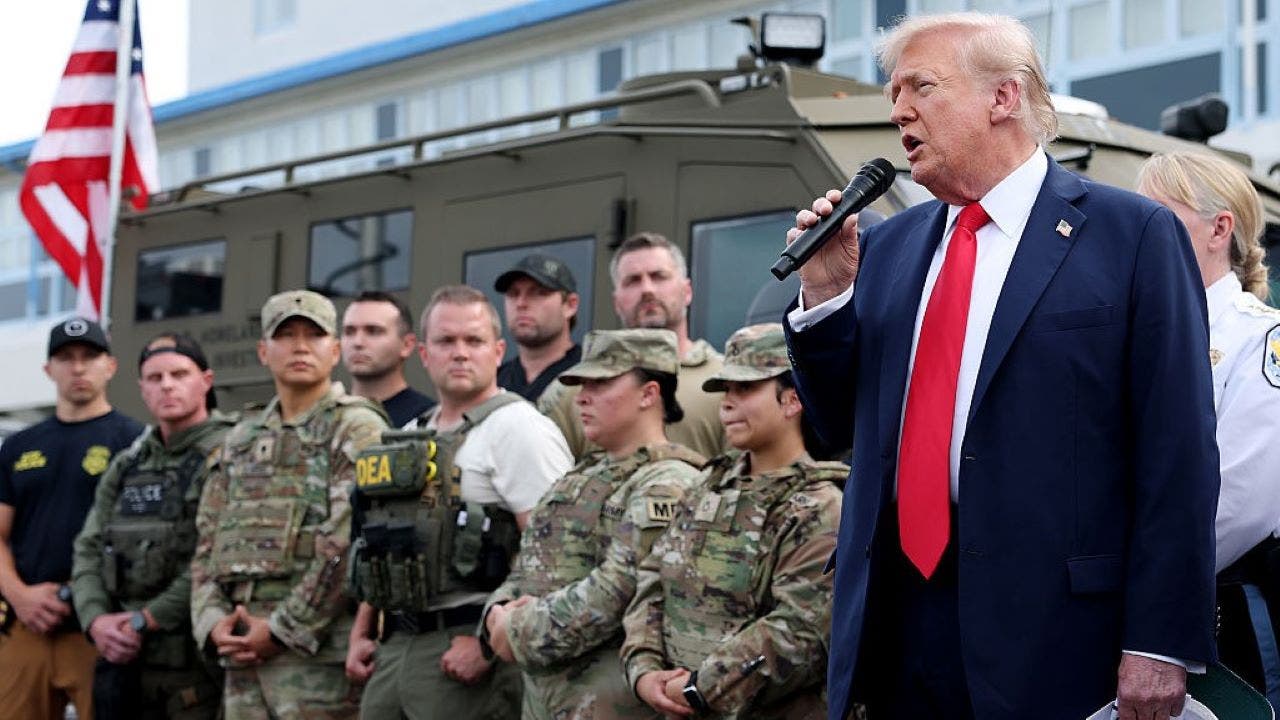Many 2024 voters who supported President Donald Trump appear to line up with his support of Israel against Iran while calling for limits, according to polling data.
Two polls, released by Democracy Institute (DI) and Gray House respectively, asked Trump voters about direct U.S. military action against Iran. DI specifically asked the question “Should America Go to War, Including Deploying Ground Troops, Against Iran,” according to a screenshot obtained by the Daily Caller. The survey polled 2024 voters generally and provided specific percentages for working class 2024 voters and Trump 2024 voters.
Of the 1,150 Trump 2024 voters DI surveyed, 64% voted against use of ground forces while 26% voted in favor, meaning approximately 736 voted “no.” Fifty-three percent of all 2024 voters surveyed also opposed deploying ground troops while 60% of 2024 working class voters voiced opposition, the screenshot shows. (RELATED: STEVE CORTES: Poll Shows Trump’s Immigration Agenda Hugely Popular)
The poll was conducted from Saturday to Monday and carries an across the margin of error (MOE) of ±3%. The results fall within a 95% confidence interval. 1,500 total 2024 voters and 1,250 working class 2024 voters participated, according to the screenshot.
Poll from the Democracy Institute, “Should America Go to War, Including Deploying Ground Troops, Against Iran”
Sixty-seven percent of Trump 2024 voters strongly supported Israel’s attack on Iran while 16% somewhat supported it, according to a Gray House poll titled “Israel Iran Poll Results” that surveyed 450 people. On Israel’s Gaza military operations, 70% expressed strong support while 15% were somewhat supportive.
35% strongly supported direct American military intervention to stop Iran from developing nuclear weapons while 37% somewhat supported doing so. Notably, the question does not mention ground troops.
Fifty-seven percent considered Iran a “very serious threat” to U.S. nationals security while 74% said they were “very concerned” about Iran possibly developing a nuclear weapon.
Fifty-eight percent of those surveyed strongly supported providing Israel with offensive weapons while 68% of respondents expressed strong support for providing defensive ones. Respondents favored intelligence sharing even more, with 76% strongly supporting the U.S. helping Israel in this manner.
48% of respondents strongly supported the U.S. providing military support to help Israel defend itself against Iranian attacks. Gray House’s survey was conducted between Saturday and Sunday, with a margin of error of ±4.8%.
Israel attacked Iran on June 12, targeting the country’s nuclear program. They also killed multiple Iranian officials and nuclear scientists. Trump responded Friday — the same day Iran retaliated — by saying he gave the mullahs a 60-day deadline to reach an agreement and reiterating his call for negotiations. He has also repeatedly said Iran should not be allowed to develop a nuclear weapon.
Talks over the 60-day period made little progress as Tehran insisted on maintaining civilian-grade uranium enrichment, something Trump has opposed. Trump said Sunday that the U.S. was not directly involved but acknowledged that future involvement was a possibility.
He has reportedly considered a strike on Iran and claimed Tuesday on Truth Social that “we know” the precise location of Iranian Supreme Leader Ali Khamenei.
Trump left the Group of Seven Summit early Monday and ordered that the National Security Council come in for a high-level Situation Room meeting. This took place Tuesday. (RELATED: LOFTUS: Trump Might Be Sitting On A Tinderbox That Could Derail Presidency)
Trump’s situation room meeting has ended.
Now we wait.
— Wallace H. White (@WallHWhite) June 17, 2025
Vice President JD Vance praised Trump for showing consistency and restraint and highlighted “crazy stuff” online in a Tuesday post amid criticism and calls for the president’s impeachment.
The White House is exploring the possibility of a meeting this week between U.S. envoy Steve Witkoff and Iranian Foreign Minister Abbas Araghchi to move toward a nuclear deal and cessation of hostilities, four sources briefed on the matter told Axios.
Read the full article here











![Former NFL QB F’d Around with The Wrong Old Man, Found Out with a Few Stab Wounds [WATCH] Former NFL QB F’d Around with The Wrong Old Man, Found Out with a Few Stab Wounds [WATCH]](https://www.drewberquist.com/wp-content/uploads/2025/10/2025.10.05-09.35-drewberquist-68e2e4abac0ed.jpg)
